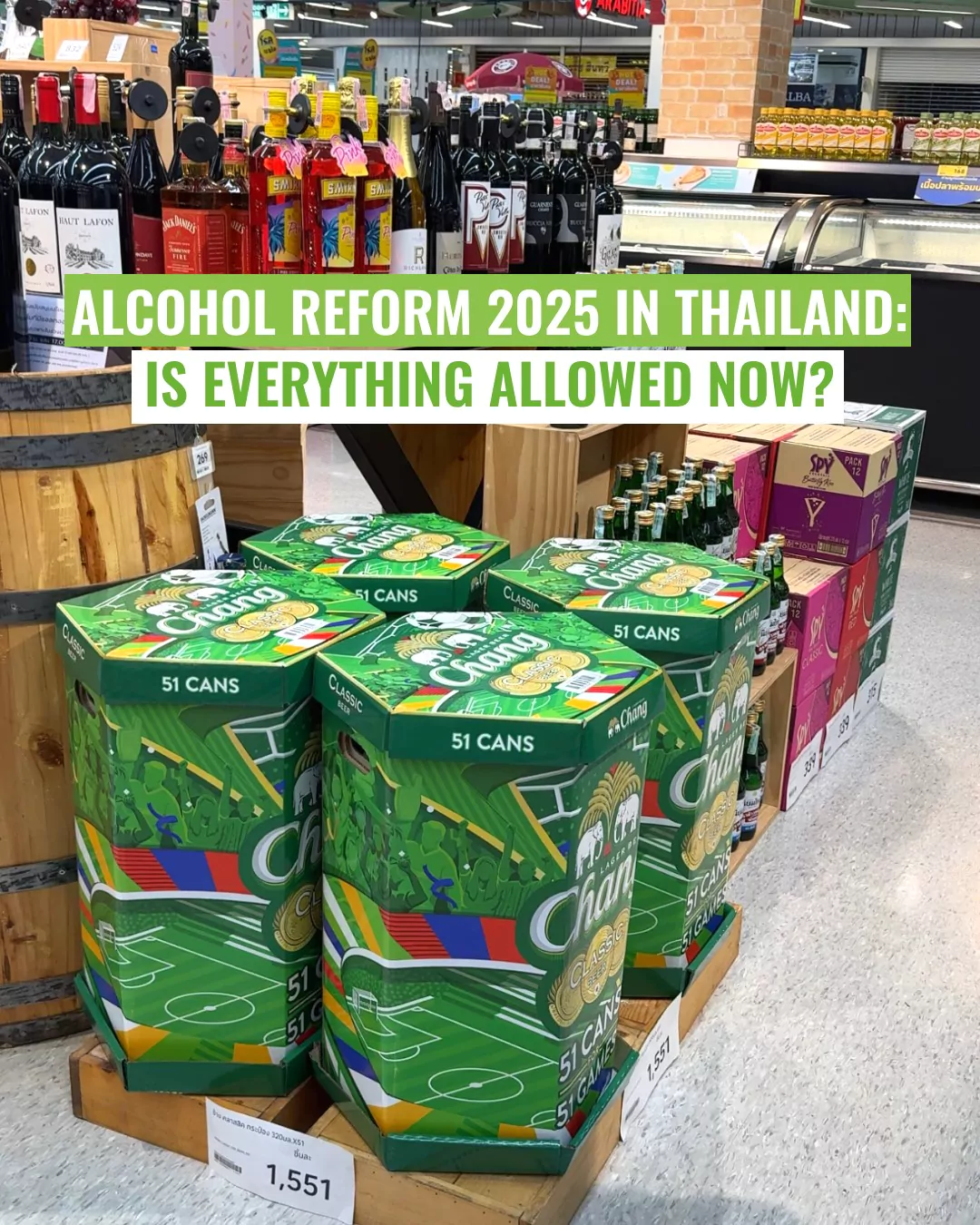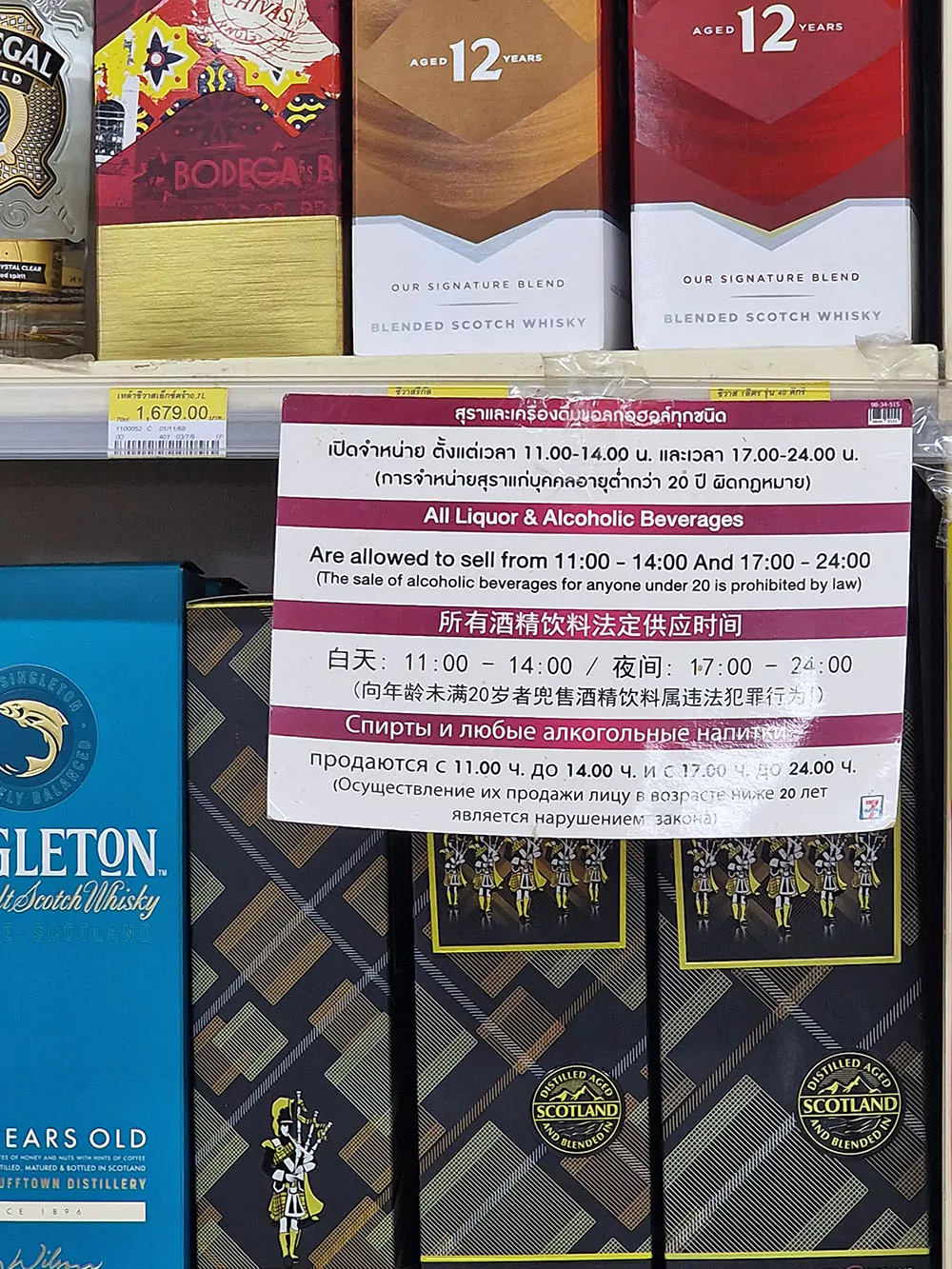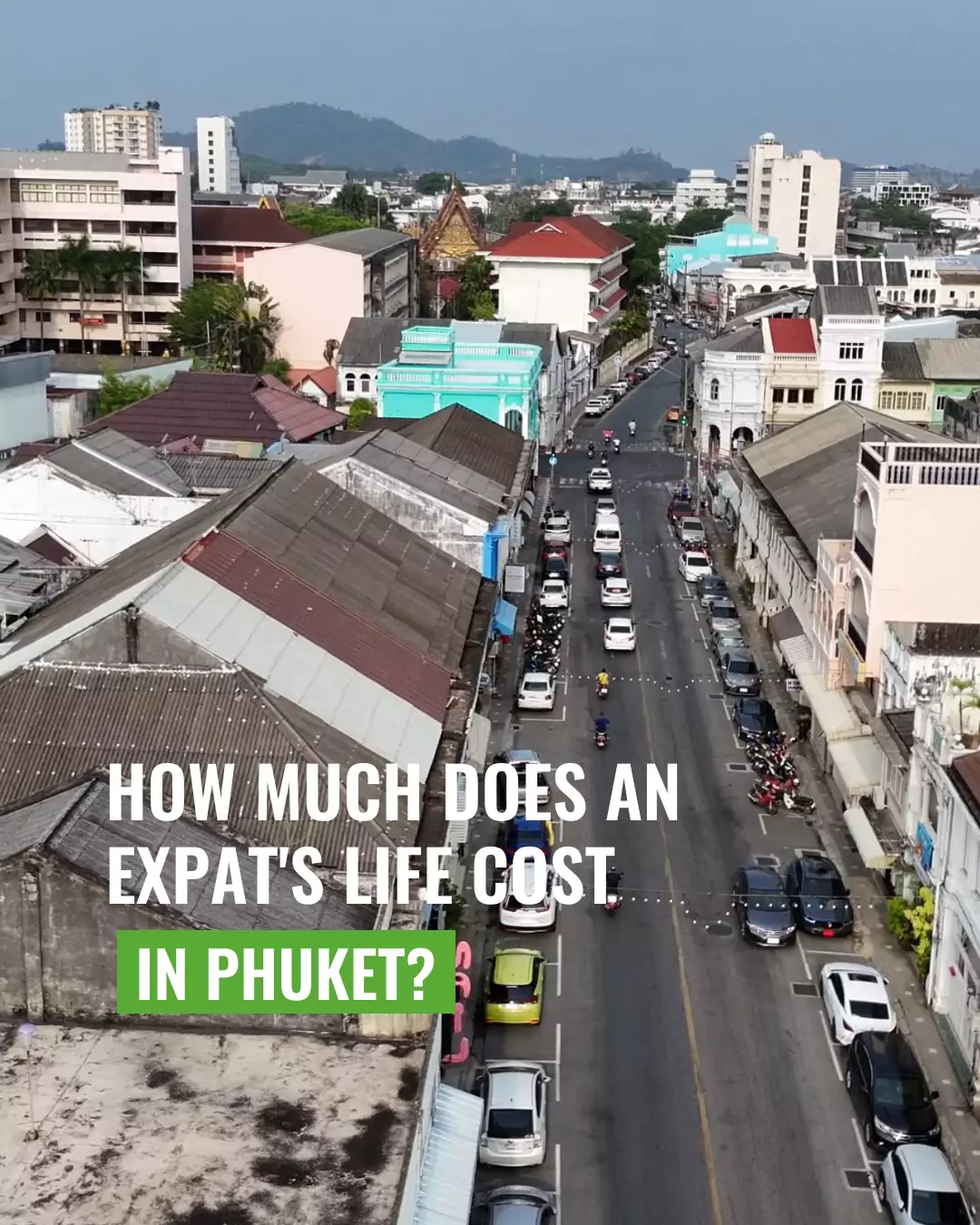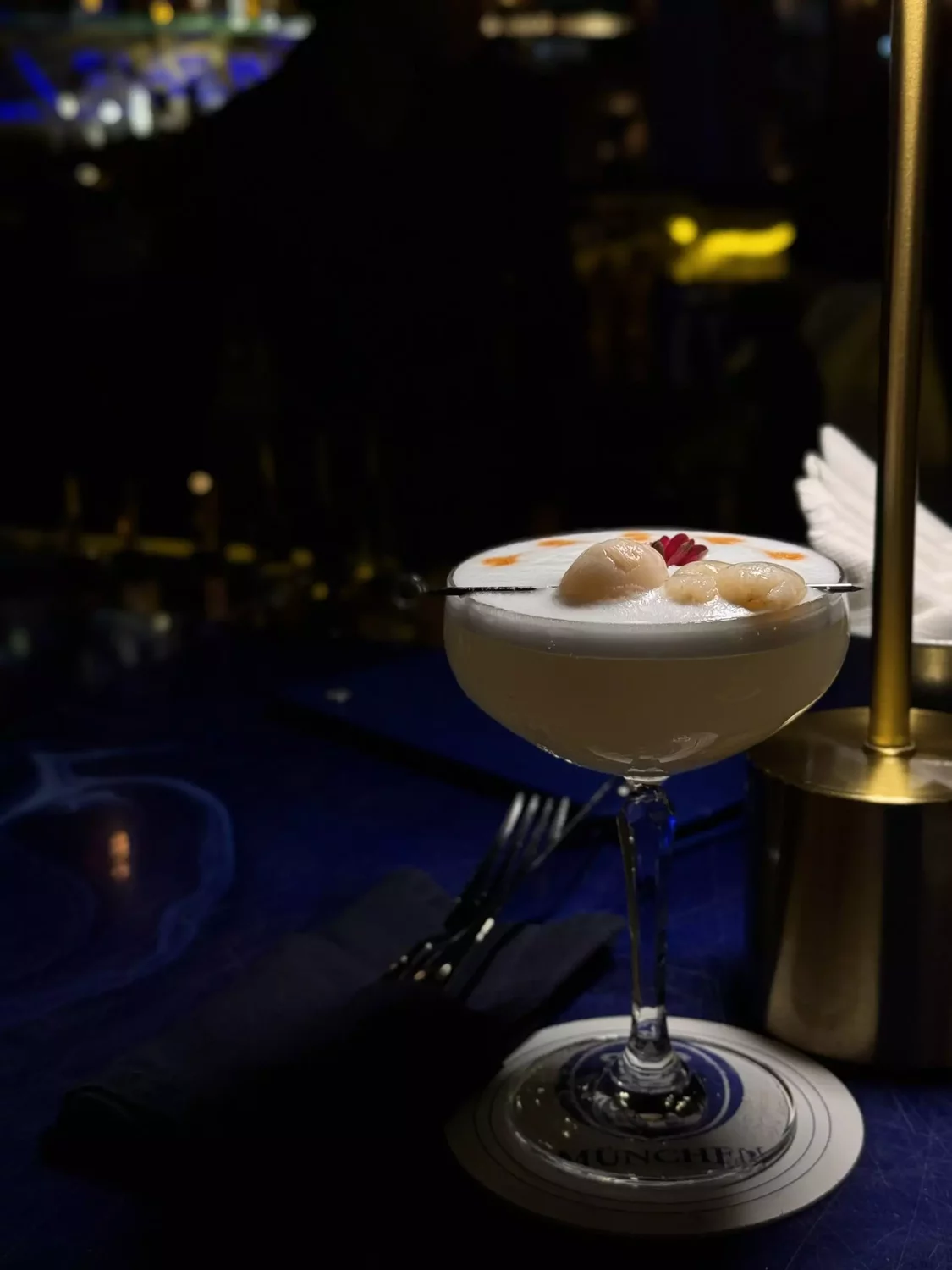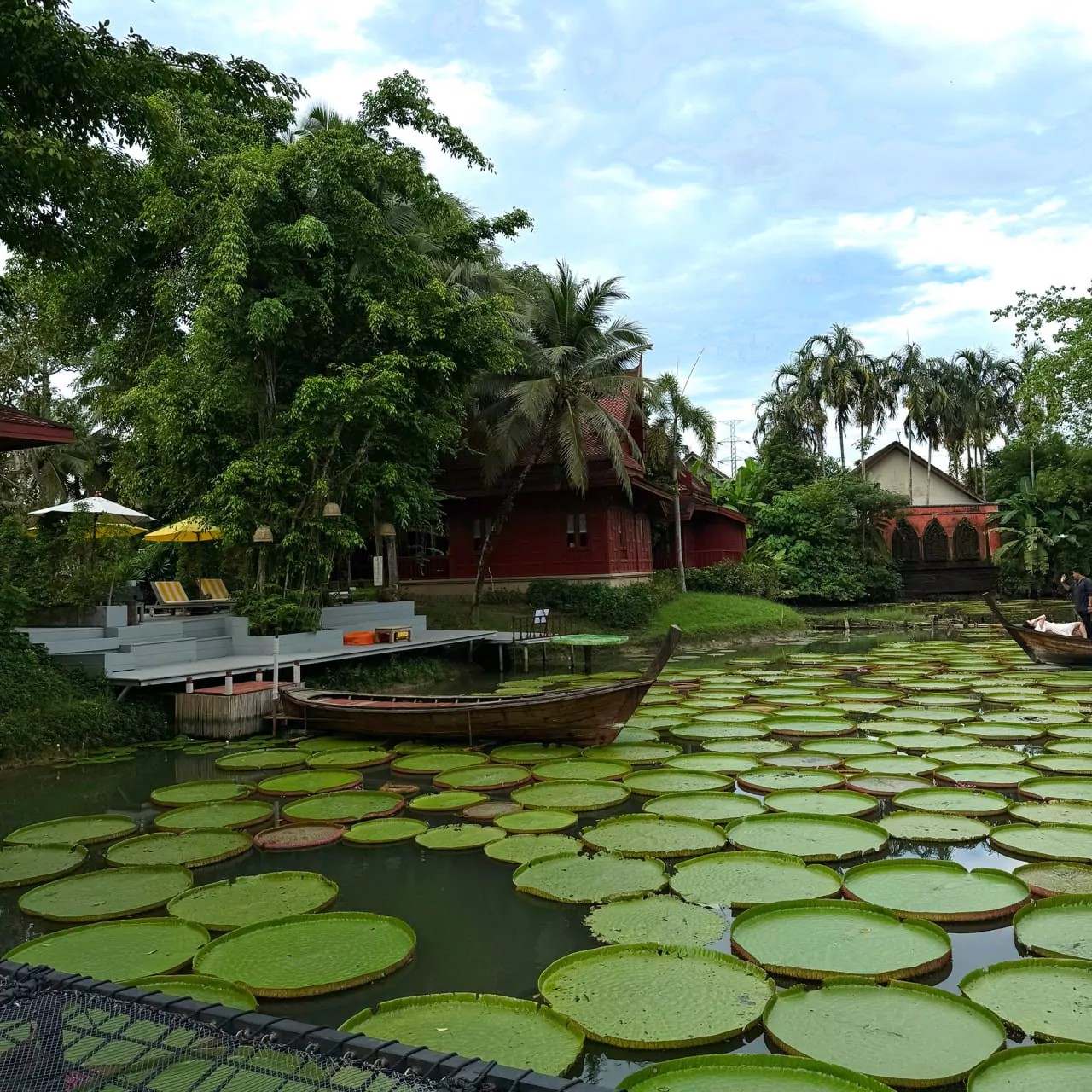Alcohol Reform 2025 in Thailand: Is Everything Allowed Now?
Thailand is preparing important changes to its alcohol sales regulations. The long-standing ban on selling alcohol from 14:00 to 17:00 may be lifted. The National Alcohol Policy Committee has supported the idea of abolishing this restriction.
The ban was introduced back in 1972 with the aim of preventing government officials from drinking during working hours. Now the authorities consider this rule outdated; moreover, it hinders the development of the tourism sector and the economy.
What exactly is planned
A pilot program has now been approved: the ban from 14:00 to 17:00 will be lifted for six months, after which its economic, social, and medical effects will be assessed. The rollout process includes a 15-day public consultation, followed by the issuance of an official order through the Office of the Prime Minister.
How the situation developed
For a long time, alcohol sales in Thailand were allowed only from 11:00 to 14:00 and from 17:00 to 00:00. On November 8, the authorities announced a tightening of the law: from 14:00 to 17:00, even holding alcohol in hand was prohibited, and violations were punishable by a fine of 10,000 baht or more.
Immediately after this, the public reacted with outrage – particularly those in the tourism industry, who began to see losses in revenue. Just a few days later, on November 13, Thailand’s National Alcohol Policy Committee supported the idea of lifting the restriction on alcohol sales and the associated fines.
Why this happened
The reason is that, despite optimistic forecasts for the winter tourist season, the Tourism Authority of Thailand announced that in 2025 the country is expected to receive only 33.4 million tourists – roughly 6% fewer than last year. This marks the first annual drop in tourist numbers in the past ten years not related to the pandemic.
The forecast for 2026 looks only slightly better: according to the government’s Public Relations Department, Thailand expects about 34 million foreign visitors next year. However, officials note that tourist spending is likely to remain modest.
In a country where tourism plays a key role in the overall economy, authorities continue to look for ways to make Thailand more attractive to visitors.
Concerns and criticism
At the same time, health experts warn that liberalization could lead to increased alcohol consumption, especially among vulnerable groups, and raise the risk of traffic accidents. Critics also note that the mechanism for monitoring and enforcing the new rules is not yet fully developed – some provinces still lack the appropriate committees, and the rules may be applied inconsistently.
Thailand’s Prime Minister, Anutin Charnvirakul, has promised to clarify the law: he has instructed the Ministries of Health and Tourism to explain the new regulations so that tourists and business operators understand how to act.
Possible consequences
- For tourists, lifting the ban could make staying in Thailand much more convenient: it would allow them to buy alcohol during the daytime, which is especially important for those used to more flexible holiday schedules.
- The restaurant and hotel industries could receive a noticeable boost, particularly in tourist areas where daytime spending is significant.
- The pilot experiment will allow authorities to realistically assess how lifting the ban affects safety (for example, the number of accidents), public health, and the economy. Depending on the results, full legalization of the changes may follow.
Insider is monitoring the developments.

